Is the end of the combustion engine phase-out?
Sales of electric cars have stalled in Germany. While some manufacturers are adapting their strategy, others are more relaxed.
The most important facts in brief
- Compared to the same month last year, 36.8 percent fewer electric cars were registered in July of this year.
- The expiry of the environmental bonus is also to blame for the decline.
- German car manufacturers are finding different ways to deal with this.
- A clear political line could create planning security – for manufacturers and customers.
Scientists and many industry experts are certain: "The car of the future will be electric." This view is no coincidence, because everything is basically green for electromobility:
- The electric drive has the highest efficiency of all drive types.
- It has a simple design and has a particularly low noise level.
- The maintenance costs are comparatively low.
- The charging current can be generated in a climate-friendly and cost-effective way with a photovoltaic system or a wind turbine.
More car news in our new Youtube video. Of course, also for the combustion engine comeback:
In recent years, the initial problems have also been largely eliminated:
- The ranges are increasing.
- New battery technologies alleviate the problem of raw materials and reduce costs.
- The charging infrastructure is growing steadily.
- Higher charging capacities shorten charging times.
- Slowly but surely, cheaper electric models are also coming onto the market.
So it's no wonder that e-mobility has been able to pick up speed in Germany in recent years: While around 63,000 e-cars were registered in Germany in 2019 (1.8 percent of total registrations), in 2023 there were already 524,219 vehicles or 18.4 percent.
In 2024, however, the slump came: In July, only 30,762 electric cars were newly registered in Germany. Compared to the same month last year, this is a decline of a whopping 36.8 percent.
Why is electromobility faltering?
The reasons for the sharp slump in the number of registrations of e-cars are manifold:
- High-priced SUVs and sedans still dominate the range of electric models. Especially with the German manufacturers.
- Even more affordable cars from South Korea, France or China are usually a few thousand euros more expensive compared to their conventionally powered counterparts.
- The environmental bonus for e-cars expired at the end of 2023.
Above all, the abolition of the environmental bonus has dealt a bitter blow to sales of e-cars. So far, it has been able to compensate for the higher acquisition costs for an electric vehicle to a large extent. Now that this state subsidy has expired, the end of the combustion engine is expected in some places.
How are German carmakers reacting to the possible comeback of the combustion engine?
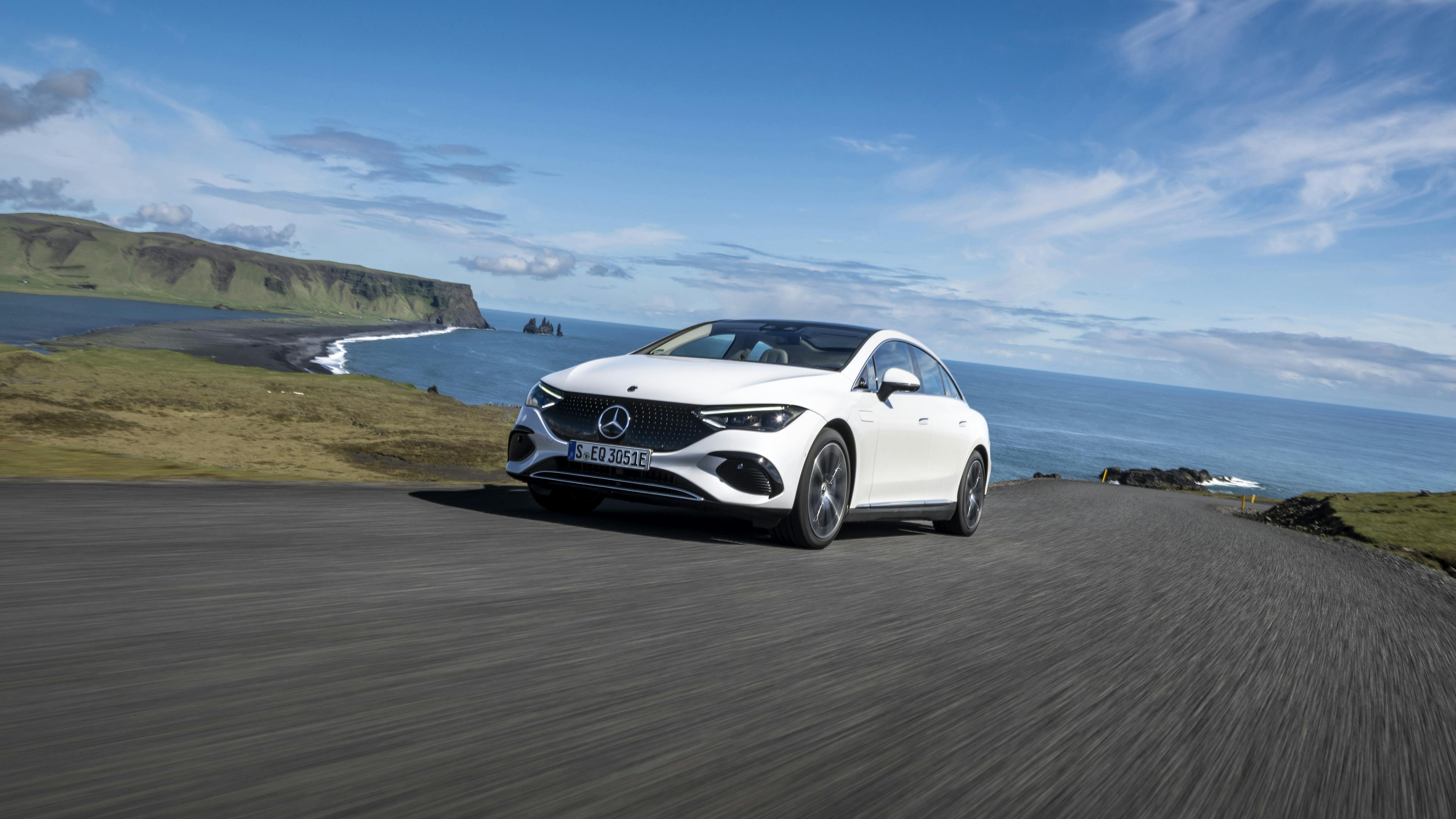
Over the past five years, the major car companies have tried to outdo each other with their ambitious electrification plans. But in view of the collapse in demand, especially in Germany, but also in some other countries, they are now partially correcting their course.
Politics is also causing uncertainty, especially in the managers' floors of the manufacturers. For example, the old and new EU Commission President Ursula von der Leyen recently announced in her policy programme that the originally targeted phase-out of internal combustion engines in 2035 would still be sought. However, this requires a technology-open approach in which e-fuels can also play a role. Whether cars with combustion engines may continue to be registered in the EU from 2035 has therefore not yet been clearly clarified.
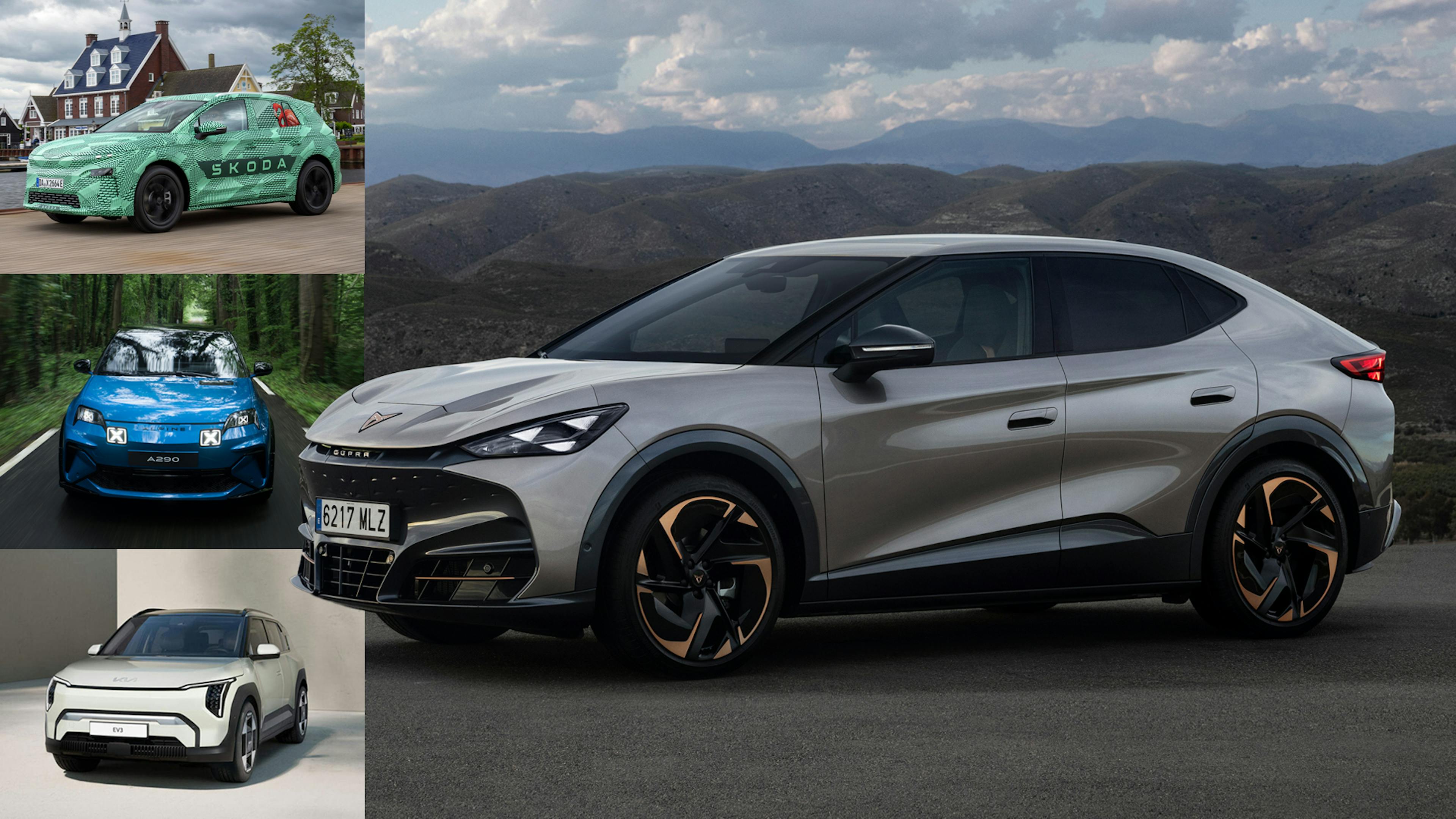
Mercedes adjusts strategy
Originally, Mercedes wanted to sell only pure electric cars from 2030 - at least where market conditions allow. This meant above all Europe and North America. By 2025, pure electric vehicles, together with plug-in hybrids, should account for half of total global sales. This was announced by CEO Ola Källenius in 2021.
But the targets were more than clearly missed. The figures for 2023 as a whole were already disappointing: Pure electric cars accounted for only about twelve percent of Mercedes' total sales, but the Swabians had originally set twenty percent as a target. In view of the disappointing growth, Källenius cashed in on the originally communicated plans in February 2023. In addition, the development of a new electric car architecture has been stopped. Instead, the current platforms will be further developed.
"Electric only" is a thing of the past. According to Källenius, the company now only assumes that electric cars and hybrids will account for more than 50 percent of total sales in the second half of the twenties. And: In an interview with WirtschaftsWoche, the Mercedes boss continued to commit to the combustion engine. In the current year alone, Mercedes plans to invest 14 billion euros in research and development as well as in production facilities. In addition to digitization and electromobility, the focus is on high-tech combustion engine technology, which means hybridized combustion engines with electric assistance.

BMW takes a two-pronged approach and continues to develop combustion engines
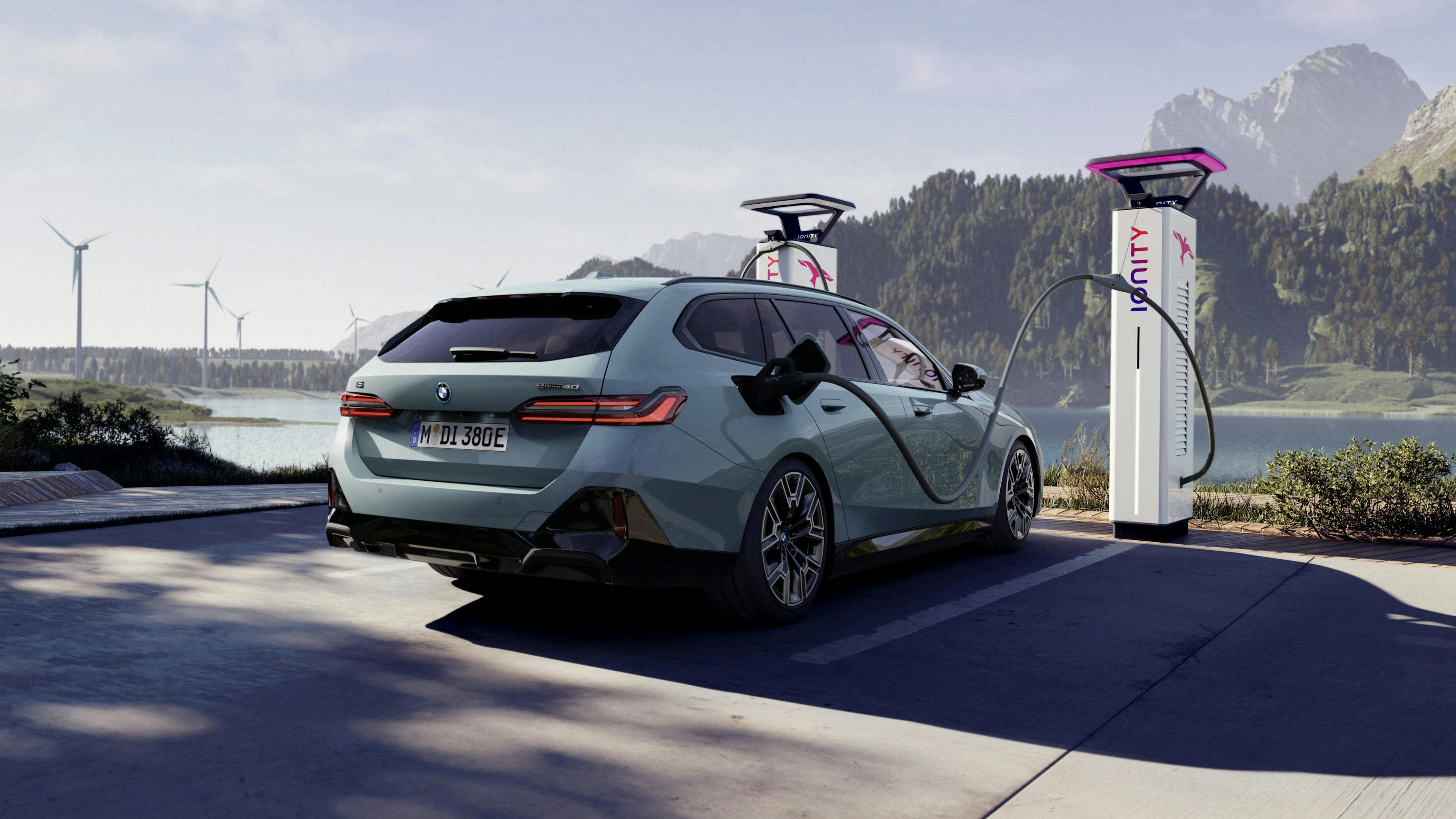
BMW is pursuing a different strategy for the electrification of the model range. Instead of developing new platforms for electric models from the outset, like Mercedes, the Munich-based company is relying on mixed platforms, at least temporarily. These can be used for pure electric cars as well as for models with combustion engines or hybrid drives.
This means that the cars all roll off the same assembly line despite the different drives, which saves costs. In addition, the electric versions and the classic combustion models look almost identical. The best example of this is the new BMW 5 Series, of which there is both the pure electric variant i5 and conventionally powered versions. Customers appreciate this pragmatic approach. The emphatically futuristic design of many electric cars strongly missed the mass taste, which further discouraged motorists from making the switch.
Industry experts initially criticized BMW for this supposedly indecisive course. But the success proves Bayern right. While the sales figures of its German competitors are stagnating, BMW is recording healthy growth in its electric models:
- In the first half of 2024, BMW sold 179,557 all-electric vehicles worldwide.
- Sales increased by more than 34 percent compared to the previous year.
- Electric vehicles already account for 16 percent of all BMW sales.
The manufacturer's electrification targets remain conservative. For three years now, BMW has been aiming for an electric share of 50 percent by 2030, and BMW CEO Oliver Zipse has never made a secret of the fact that he does not think much of political coercion for electric drives. In May 2024, he described a forced phase-out of internal combustion engines as naïve in an interview with the Frankfurter Allgemeine Zeitung. If the registration ban is not rejected, Zipse sees the value creation of the German automotive industry in serious danger.
And so BMW continues to develop combustion engines. Only recently, the Bavarian carmaker patented a new combustion technology: Pre-chamber combustion is intended to make gasoline engines more efficient in the future and have better exhaust gas values.
VW Group warns against return to "combustion engine love"
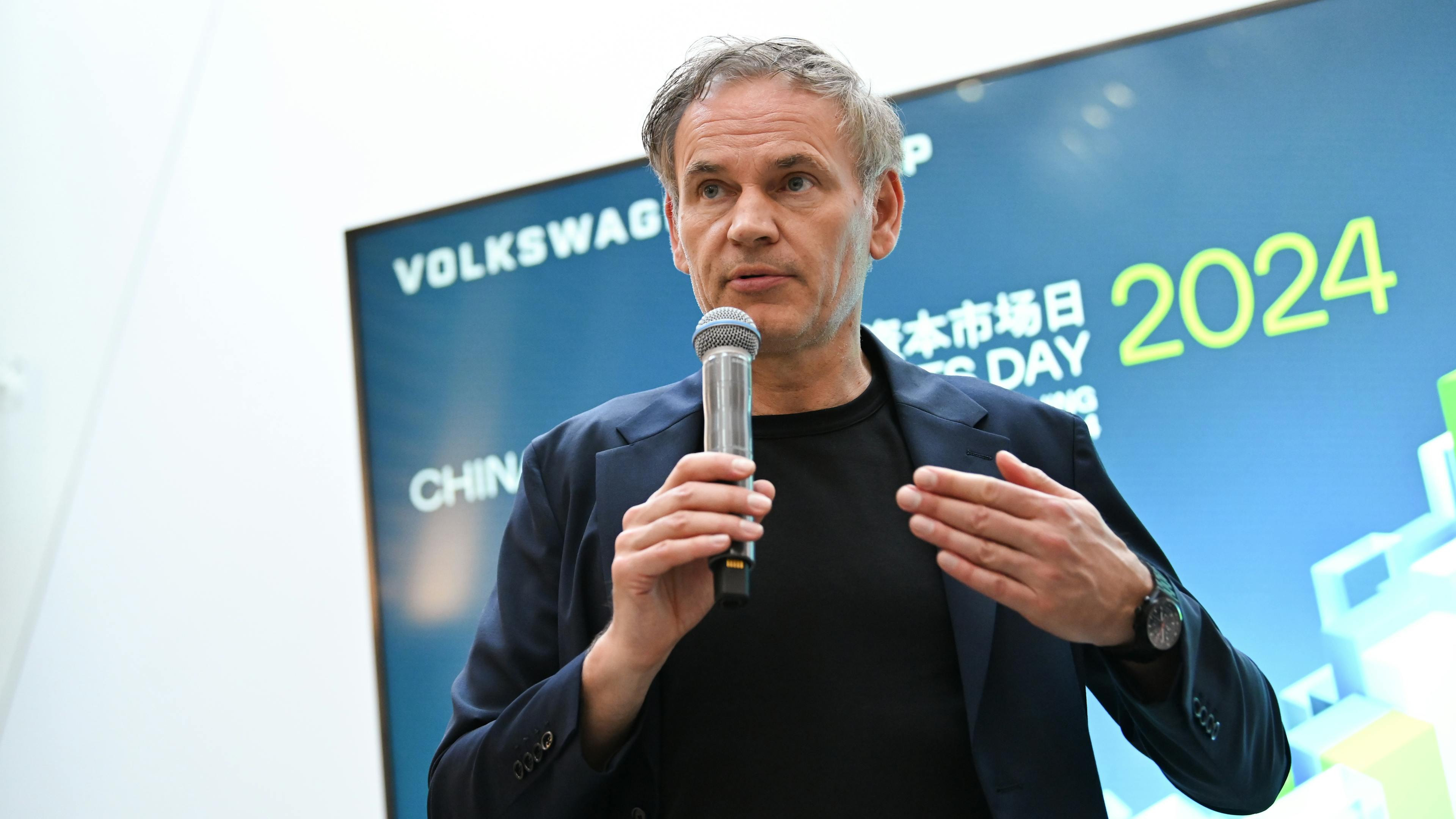
In 2021, Chief Technology Officer Thomas Schmall announced that he wanted to produce battery cells in six plants by 2030. Now there is only talk of three gigafactories: in Salzgitter (2025), Valencia (2026) and in St. Thomas (2027), Canada.
Even though only half of the originally announced plants will now be built, Schmall considers the target of 200 gigawatt hours by 2030 to be realistic. And he also does not want to move away from the path he has taken in principle, as he told Manager Magazin in March. The transformation is a huge challenge, so "minor delays and adjustments" are always necessary. At the same time, he warned against a relapse into "combustion engine love".
Oliver Blume, CEO of the VW Group and Porsche CEO, welcomes the possible move away from the complete ban on the registration of combustion engines from 2035. In an interview with Welt am Sonntag in August, he said that he thinks it is right for the EU to stick to electromobility, but to include other technologies such as synthetic fuels (e-fuels).
Nevertheless, the manager of the VW Group makes it clear that the course of all companies belonging to the group clearly points in the direction of e-mobility. The reason: "Electric technology is highly superior to the combustion engine."

Porsche: E-fuels from South America
Synthetic fuels can make an immediate contribution to climate protection, even if not with the large mass of vehicles. The quantities of alternative fuels that can be produced are simply too small for this.
Porsche wants to counteract this: HIF Global has been producing synthetic fuel in southern Chile since December 2022. Porsche has a stake in the company and has so far invested over 100 million US dollars in the development and supply of e-fuels.
In terms of its balance sheet, Porsche wants to demonstrate a CO2-neutral value chain in 2030. Synthetic fuels are a crucial part of the sports car manufacturer's sustainability strategy. The use phase of the all-electric cars is also to be CO2-neutral thanks to green electricity.
Volkswagen postpones new electric cars
The VW brand has set itself the goal of 2050 in order to be CO2-neutral in terms of its balance sheet. However, it is currently not certain how straightforward this "Way to Zero" will be, because Volkswagen also has to react to the current slump in the electric car market.
Some time shifts for certain models are the result: Actually, the Trinity electric SUV was supposed to be launched as early as 2026. It is considered the brand's flagship model and is intended to undermine Tesla in the electric market. It was announced confidently: "The newly developed vehicle architecture will set standards in range, charging speed ('charging as fast as refueling') and digitalization." But first software problems got in the way, now the interest of the clientele is missing. The start of production of the flagship model has reportedly been postponed to the end of 2032.
The new all-electric SUV T-Sport may not be produced until 2031 and the successor to the VW ID.4 could also not be launched until 2030 – two years later than planned. Only the VW Golf has so far not deviated from the original timeline: The all-electric variant of the Golf is scheduled to go into production from the end of 2029 and is then likely to replace the similarly sized electric compact ID.3.
Audi plans to phase out internal combustion engines in 2033
Meanwhile, Audi CEO Gernot Döllner considers the slump in sales of electric cars to be a temporary phenomenon. Therefore, he is sticking to offering an all-electric vehicle in every core segment of the brand by 2027.
And he also does not want to shake the planned end of combustion engines at Audi in 2033: The last combustion engine is to roll off the Audi assembly line in December 2033 at the latest. Until then, these vehicles in the portfolio would only be modified to the extent necessary to remain capable of acting, according to Döllner. However, the extent to which this is necessary also depends on the legislation.
Opel sticks to its goals
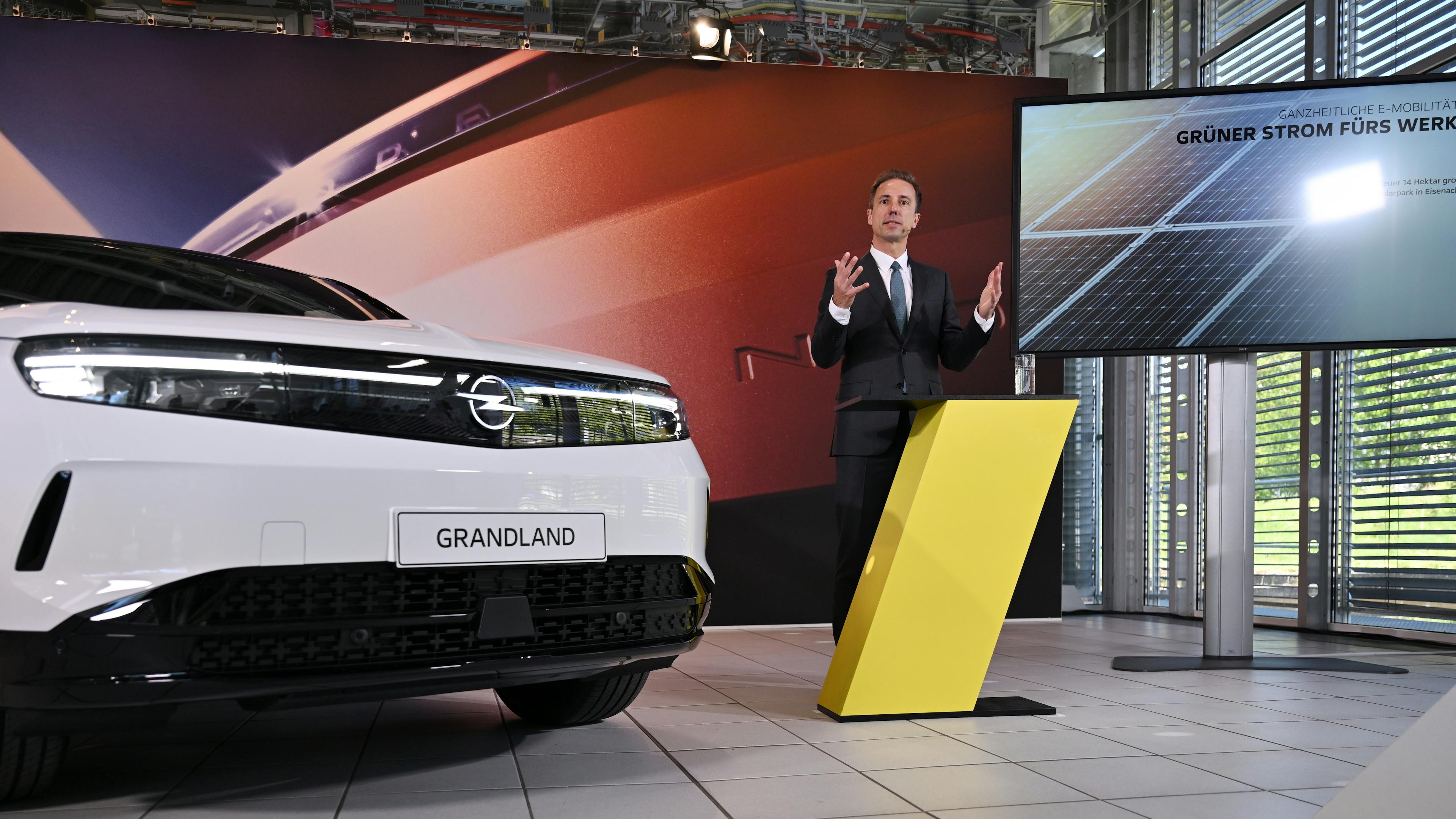
Die Stellantis-Tochter Opel gibt sich bei ihren Elektrifizierungsplänen besonders ambitioniert. Die Rüsselsheimer wollen auf dem europäischen Markt ab 2028 nur noch rein elektrische Modelle anbieten. Markenchef Florian Huettl bekräftigte im April im Gespräch mit der dpa, dass Opel von diesem Ziel nicht abweichen werde.
Das Aus der staatlichen E-Auto-Förderung könne den Weg in die Elektromobilität verlängern, es werde sie aber nicht aufhalten. „Wir halten ganz klar an unserem Plan fest, auch was die Geschwindigkeit betrifft. Wir können das nur zu einem gewissen Grad von der Politik abhängig machen“, fügt der Manager hinzu. Opel möchte noch in den kommenden Jahren ein batterieelektrisch angetriebenes Modell für unter 25.000 Euro auf den Markt bringen, das den rein elektrischen Absatz ankurbeln soll.
VDA fordert Verbot fossiler Kraftstoffe ab 2045
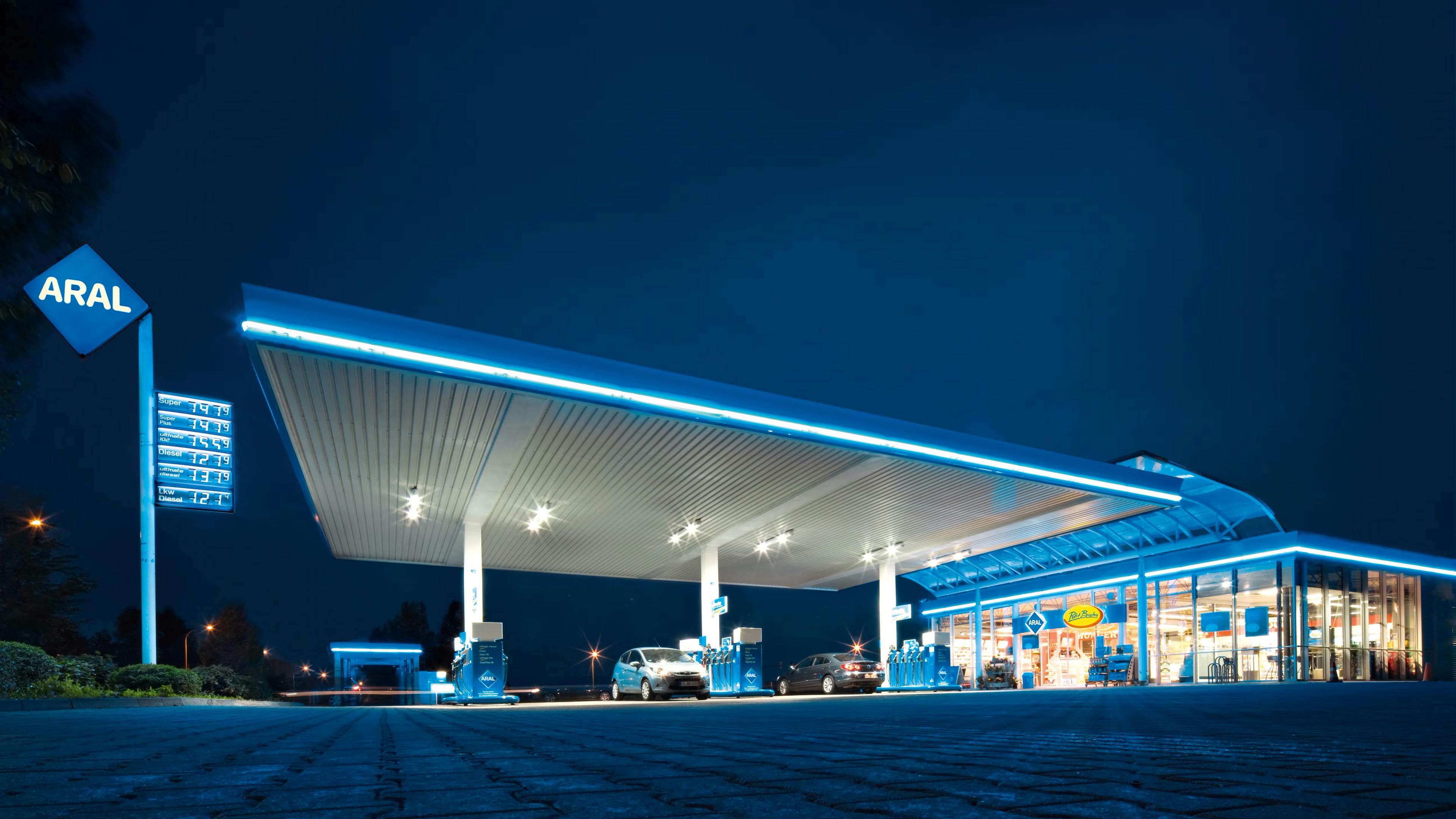
In a position paper published in August, the German Association of the Automotive Industry (VDA) advocates very decisive measures: From 2045, fossil fuels should no longer be allowed to be sold at German filling stations. Because, according to the association, the requirements for combustion engines that have already been sold are "not ambitious enough": These vehicles are still on the road many years after the ban on the registration of combustion engines with fossil fuels, unless there are sufficient alternative fuels. And there is currently no incentive for their production.
The VDA is therefore calling for minimum quotas for more climate-friendly eco-fuels, as they already exist in shipping and aviation. State subsidies, for example through the energy tax, could make the production of these fuels attractive for companies.
What's next for the phase-out of internal combustion engines?
If you look at the electric car markets internationally, it quickly becomes clear that the uncertainty affects Germany in particular. In China – one of the crucial markets for German carmakers – sales of electric vehicles are currently experiencing a real high. Technologically, electric vehicles from China are partly superior to those from Germany. This is one of the reasons why the manufacturers based there have been able to increase their market share from 33 to 52 percent since 2020. In contrast, things are going downhill for German carmakers, which rely much more heavily on combustion engines, in the People's Republic: The market share of German vehicles fell by almost six percentage points to 20.7 percent.
The lack of focus on electric drives means that German manufacturers are currently having a difficult time in Asia: Some of the cars produced in this country fail to meet the needs of Chinese customers – especially when it comes to infotainment functions.
BYD lures entertainment-addicted customers, for example, with a built-in karaoke app. Something like this would currently be unthinkable with the deadly serious German manufacturers, as would the direct integration of the all-purpose app WeChat, which plays an important role in China.

When combustion engines were still selling well there, Mercedes, BMW and VW were able to compensate well for the lagging behind in electric mobility. Now that the jolt towards electric cars in China is clearer than ever, German carmakers will probably not be able to close their eyes to the trend any longer.
It can therefore be assumed that the current downturn of the e-car and the lack of focus among German manufacturers will soon be over. The local carmakers will have no choice if they want to continue to secure or expand their market shares globally.
If the climate targets are to be achieved, there is virtually no alternative to electromobility. In addition, thanks to technical progress with better battery technologies, shorter charging times and longer ranges, it has long been suitable for everyday use.
In just a few years, the type of drive will be vastly superior thanks to rapid technical progress. In the field of battery research, the construction of electric motors and software, great progress is constantly being made, while combustion engine technology offers only a small scope for optimization.
Und noch ein Punkt spricht dafür, dass die Flaute nur vorübergehend sein wird: Ab dem Jahr 2025 müssen Hersteller die Emissionen ihrer Neuwagenflotten gegenüber 2021 um 15 Prozent reduzieren. Ab 2030 sind es 55 Prozent. Steigern sie den Anteil von E-Autos an ihren Gesamtverkäufen nicht massiv, winken hohe Strafzahlungen. Das „Aus des Verbrenner-Aus“ dürfte also nur ein Schreckgespenst sein. Auf dem weltweiten Elektroautomarkt stehen die Zeichen nämlich auf Erholung – auch wenn diese positive Entwicklung aktuell nur in anderen Ländern zu beobachten ist.
